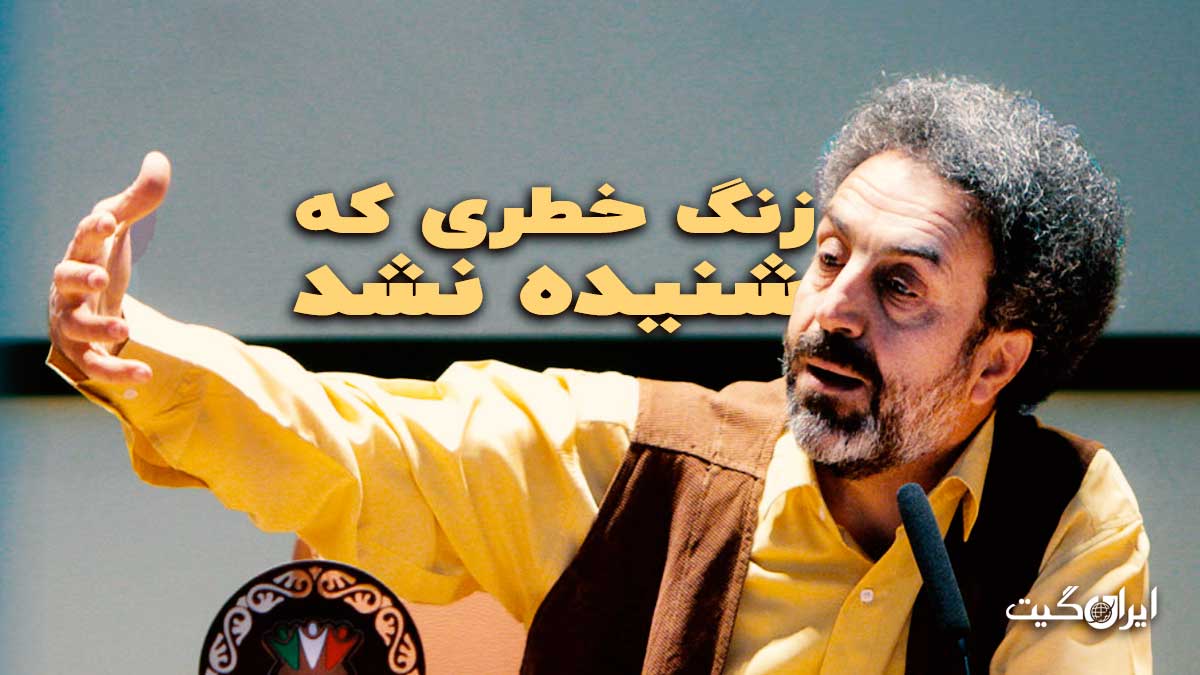The Alarm Bell That Went Unheard
The Alarm Bell That Went Unheard: According to Iran Gate, Mohsen Renani, a prominent university professor and economist, reported yesterday that he was unsuccessful in delivering a letter warning of serious risks of collapse to the leader.
What’s noteworthy is that two months ago, Renani asked Mohammad Javad Zarif, the former foreign minister, to deliver this letter to the leader of the Islamic Republic. Now, after two months, Zarif has told him he couldn’t deliver the letter to the leader.
A Closed Circle Causing Blockage
Before examining the content of Renani’s letter, another serious issue that can be identified in this process itself can answer many questions: the fact that a well-known academic like Mohsen Renani cannot deliver a two-page letter to the leader, even through a top-level official like Mohammad Javad Zarif, is highly interpretable.
Is there no ear to hear criticism? Has the leader’s office isolated him, allowing only specific individuals to be present? These are among dozens of other questions that need serious discussion and debate.
Just randomly select a few speeches by Ayatollah Khamenei from the past six months and examine his views on development, progress, and the efficiency of the system. Compare these exaggerated views, often referred to as ‘moving towards the peak,’ with the existing reality in society, not even beneath the surface of the cities, to find answers to many questions.
Elites Behind Doors, Incompetents on the Throne

After half a century of the revolutionary Islamic Republic’s existence, we should expect, even through trial and error and past experiences, to have moved beyond swapping concepts like commitment and expertise for entrusting matters to managers and officials.
Unfortunately, not only has this not happened, but the trend of opposing elites and fostering incompetents has increased strangely. A significant manifesto titled ‘The Second Step of the Revolution’ has even been written, implicitly emphasizing the cultivation of followers instead of independent thinkers for managerial roles, under the label of ‘young revolutionary managers.’
From such a manifesto emerge managers who are sycophantic, poorly informed, boastful, and idealistic, like Hojjat Abdolmaleki. His presence in management causes costly disasters for the country, which even his peers in the revolutionary parliament cannot tolerate.
A Governance That is a Paradise for Dream Sellers
The decline in the political capital of officeholders is markedly on the rise. Just take a look at the members of parliament, government ministers, and the president and his first deputy to realize their distance from their predecessors in previous terms, with all indicators declining. This is undoubtedly the result of Ayatollah Khamenei’s political taste and preferences, as he has now achieved the ideal composition of a revolutionary parliament and government.
He has proven over the years of his leadership the challenges and discursive conflicts he has had with established governments whose discourses were not to his liking, ultimately leaving the discourse of the sitting government incomplete through effort, using appointive and promotional tools, and sometimes exploiting conflicts between parliament and governments.
The only government that did not have a discursive conflict with Khamenei was Ahmadinejad’s government, which later faced a power struggle with Ahmadinejad when he decided to dismiss the intelligence minister, Moslehi, ultimately leading to the famous eleven-day house arrest of Ahmadinejad.
In any case, all previous governments have their presidents today as the leader’s disfavored, likely due to the leader’s powers in the constitution and Ali Khamenei’s personal traits, similar to many of his predecessors in history who could not tolerate opposing voices. Of course, the nature of the pre-sold dreams is akin to the domestic Lamborghini and the unfinished dream of Mostaan, which only results in political intoxication and fiery speeches.
The Danger is Serious
A mere glance at Mohsen Renani’s letter or the warnings of the renowned sociologist Saeed Madani, who is imprisoned for it, clearly reveals how serious the threat of a costly collapse is.
But more dangerous than these warnings is the fact that these voices are not heard or reaching the top of the hierarchy, which only suggests one thing: the governance structure is designed in such a way that no voice other than the sycophantic and flattering is heard, so the country continues on this path towards collapse, and by then, hearing any voice, even the voice of revolution, will be of no use.

